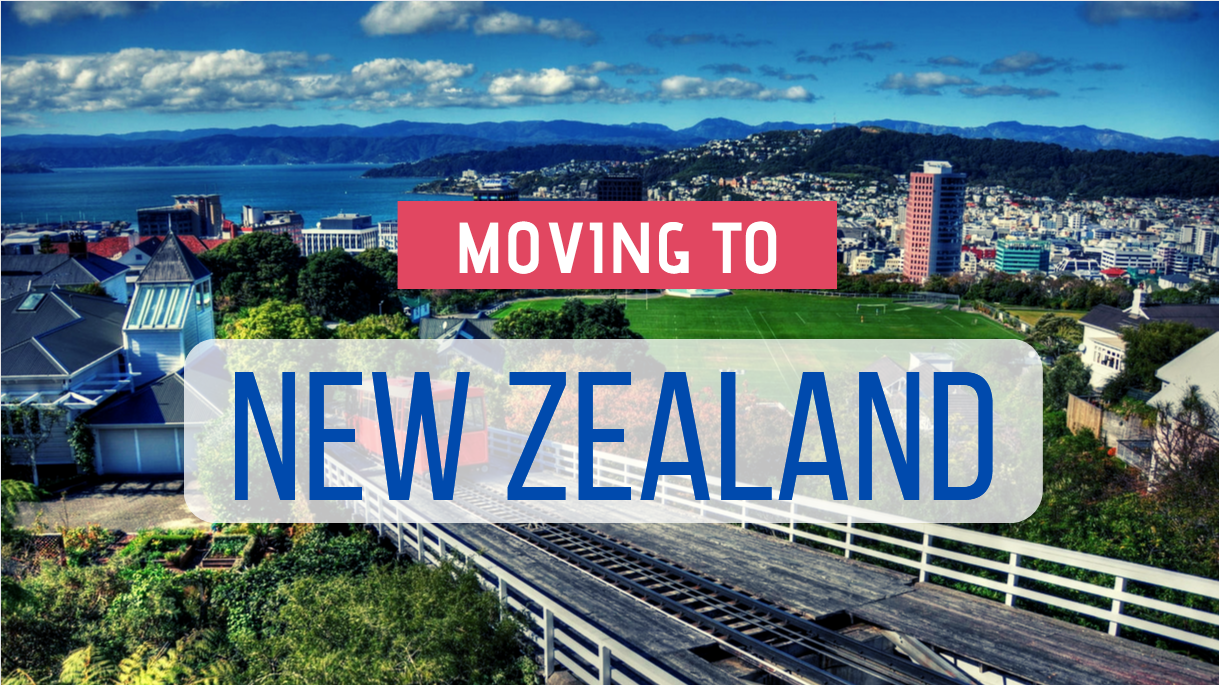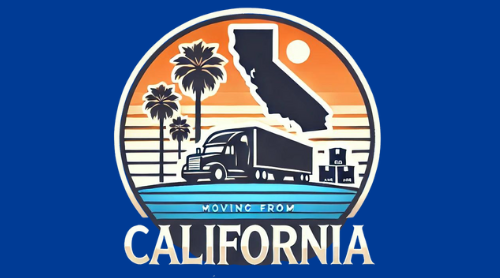Moving From California To New Zealand
Are you ready to trade in the sun-kissed beaches and laid-back vibes of California for the stunning landscapes and adventure-filled lifestyle of New Zealand? If so, you're not alone. Many individuals and families have made the move from the Golden State to the Land of the Long White Cloud, drawn by its unparalleled natural beauty, friendly locals, and relaxed pace of life. In this article, we'll explore the ins and outs of making the move, from visa requirements and job opportunities to finding a place to call home and navigating cultural differences.

Embracing a New Lifestyle: Moving from California to New Zealand
Moving from California to New Zealand can be a thrilling adventure, but it requires careful planning and consideration. Here's a comprehensive guide to help you navigate the process and make a successful transition.
Visa Requirements and Immigration Process
To move to New Zealand, you'll need to obtain a visa or residency permit. The country has a points-based system, where you'll be assessed on factors like age, work experience, language proficiency, and qualifications. You can apply for a visa through the New Zealand Immigration website or consult with a licensed immigration adviser. Be prepared to provide detailed documentation, including a police certificate, medical certificate, and proof of language proficiency.
Housing and Accommodation
Finding a place to live in New Zealand can be competitive, especially in popular cities like Auckland and Wellington. You can start by researching online, using websites like Trade Me or Realestate.co.nz to find apartments or houses for rent or sale. Consider factors like location, proximity to work, and amenities like public transport and schools.
Job Opportunities and Career Development
New Zealand has a strong economy, with major industries in tech, healthcare, and tourism. You can search for job opportunities on websites like Seek or LinkedIn, or consider freelancing or starting your own business. Be prepared to adapt to the local job market and consider upskilling or reskilling to increase your chances of employment.
Cost of Living and Financial Planning
New Zealand has a higher cost of living compared to California, especially when it comes to housing and transportation. Plan your finances carefully, considering factors like taxes, healthcare, and living expenses. You may need to adjust your budget and lifestyle to accommodate the differences.
Cultural Adaptation and Integration
Moving to a new country can be a cultural shock, especially when it comes to adapting to a new language, customs, and way of life. Be open-minded and willing to learn about New Zealand's unique culture and history. Consider joining expat groups or clubs to connect with like-minded individuals and build a social network.
| Category | California | New Zealand |
|---|---|---|
| Cost of Living | High | Higher |
| Tax Rate | 9.3% - 13.3% | 10.5% - 33% |
| Average Salary | $65,000 - $100,000 | $45,000 - $80,000 |
| Weather | Mild, sunny | Mild, rainy |
| Language | English, Spanish | English, Maori |
How hard is it for a US citizen to move to New Zealand?

Moving to New Zealand as a US citizen can be a complex process, but with the right guidance, it can be a smooth transition. Here's an overview of the process:
Visa Requirements
To move to New Zealand, US citizens need to obtain the appropriate visa. The type of visa depends on the purpose and duration of the stay. Work visas are required for those who want to work in New Zealand, while student visas are for those pursuing education. Visitor visas are suitable for those who want to stay in New Zealand for a short period (less than 9 months) for tourism, business, or visiting family and friends.
Some key requirements for US citizens applying for a visa include:
- Meeting the age, health, and character requirements
- Passing a police certificate check
- Providing proof of language proficiency in English
- Meeting the required qualifications and experience for the specific visa type
Points-Based System
New Zealand uses a points-based system to assess visa applications. Applicants are awarded points for factors such as:
- Age: Applicants between 20 and 39 years old receive the maximum points
- Work experience: Relevant work experience in a specific field or industry
- Education: Qualifications and diplomas from recognized institutions
- Language ability: Proficiency in English and/or Maori
Applicants need to score at least 100 points to be eligible for a visa.
Residency and Citizenship
After living in New Zealand for a certain period, US citizens may be eligible to apply for residency or citizenship. To become a resident, applicants need to meet the residency requirements, which typically involve living in New Zealand for at least 5 years. To become a citizen, applicants need to meet the citizenship requirements, which include:
- Meeting the residency requirements
- Passing a citizenship test
- Demonstrating a strong connection to New Zealand
Note that the process and requirements may vary depending on individual circumstances, and it's recommended to consult the official government website or an immigration lawyer for personalized guidance.
Is it more expensive to live in California or New Zealand?
The cost of living in California versus New Zealand is a significant consideration for individuals and families contemplating a move. While both regions offer a high quality of life, the expenses involved in daily living, housing, and other necessities can vary substantially.
Housing Costs
One of the most significant factors contributing to the overall cost of living is housing. In California, the median home price is around $650,000, with prices escalating in popular cities like San Francisco and Los Angeles. In contrast, the median home price in New Zealand is around $430,000. However, it's essential to consider that these prices are averages, and actual costs can vary greatly depending on the location, size, and condition of the property.
Here are some approximate housing costs in California and New Zealand:
- In California:
- Rent: $2,000 - $5,000 per month for a 2-bedroom apartment
- Buying: $650,000 - $1,000,000 for a 2-bedroom house
- In New Zealand:
- Rent: $1,500 - $3,000 per month for a 2-bedroom apartment
- Buying: $430,000 - $700,000 for a 2-bedroom house
Food and Transportation Costs
Another critical aspect of the cost of living is day-to-day expenses, including food and transportation. California is known for its high taxes, which can impact the price of goods and services. New Zealand, on the other hand, has a more modest tax system, which can result in lower prices for everyday items.
Here are some approximate food and transportation costs in California and New Zealand:
- In California:
- Meal at a mid-range restaurant: $15 - $25 per person
- Groceries: $100 - $150 per week for basic items
- Gasoline: $3.50 - $4.50 per gallon
- In New Zealand:
- Meal at a mid-range restaurant: $10 - $20 per person
- Groceries: $80 - $120 per week for basic items
- Gasoline: $2.50 - $3.50 per liter (approximately $10 - $14 per gallon)
Lifestyle and Recreational Activities
The cost of enjoying leisure activities and hobbies can add up quickly in both California and New Zealand. However, California is known for its vibrant cultural scene, theme parks, and high-end shopping centers, which can come with a higher price tag.
Here are some approximate costs for lifestyle and recreational activities in California and New Zealand:
- In California:
- Movies: $15 - $25 per person
- Theme park tickets: $100 - $150 per person
- Yoga classes: $20 - $30 per session
- In New Zealand:
- Movies: $10 - $20 per person
- National park fees: $20 - $50 per person
- Yoga classes: $15 - $25 per session
Is it worth moving to New Zealand?

New Zealand is a popular destination for expats and immigrants alike, known for its stunning natural beauty, friendly locals, and high standard of living. But is it worth making the move?
Pros of Moving to New Zealand
New Zealand offers a unique blend of urban and rural living, with plenty of opportunities to explore the great outdoors. Here are some of the top advantages of making the move:
- Unspoiled Nature: From the rugged mountains to the pristine beaches, New Zealand is a nature lover's paradise. With its vast wilderness areas, national parks, and protected reserves, you'll never be short of opportunities to hike, camp, or simply take in the breathtaking scenery.
- Friendly and Welcoming Culture: Kiwis are known for their warm hospitality and welcoming nature. You'll find it easy to make friends and settle into the local community, with a strong sense of camaraderie and social connection.
- High Standard of Living: New Zealand boasts a high standard of living, with good healthcare, excellent education, and a strong economy. You'll enjoy a comfortable lifestyle, with plenty of amenities and services at your fingertips.
Challenges of Moving to New Zealand
While New Zealand is an attractive destination, it's not without its challenges. Here are some of the potential downsides to consider:
- Remote Location: New Zealand is a long way from many parts of the world, making it difficult to stay connected with family and friends back home. You may also find it challenging to access certain products or services due to the country's remote location.
- Weather and Climate: New Zealand's climate can be quite changeable, with harsh winters and unpredictable weather patterns. You may need to adjust to a different climate and be prepared for extreme weather events.
- Cost of Living: While the standard of living is high in New Zealand, the cost of living can be steep, especially in larger cities like Auckland and Wellington. You'll need to budget carefully to ensure you can afford the lifestyle you want.
Things to Consider Before Making the Move
Before making the move to New Zealand, there are several key factors to consider. Here are some essential things to think about:
- Visa Requirements: Make sure you understand the visa requirements for New Zealand and the process for obtaining a visa. This can be a complex and time-consuming process, so it's essential to plan ahead.
- Job Opportunities: While New Zealand has a strong economy, job opportunities may be limited in certain fields. Research the job market and ensure you have a clear understanding of your career prospects.
- Housing and Accommodation: Finding affordable housing and accommodation can be a challenge in New Zealand, especially in larger cities. Be prepared to look outside of urban areas or consider alternative accommodation options.
How much money do I need to save to move to New Zealand?

The amount of money you need to save to move to New Zealand varies greatly depending on several factors such as your lifestyle, accommodation choices, and visa requirements. However, here are some general guidelines to help you estimate the costs involved:
Visa Fees and Application Costs
The cost of obtaining a visa to move to New Zealand ranges from NZD $500 to NZD $3,000 depending on the type of visa you're applying for. Here's a breakdown of some of the common visa fees:
- Work to Residence visa: NZD $1,505 - NZD $3,000
- Skilled Migrant visa: NZD $530 - NZD $1,505
- Working Holiday visa: NZD $245 - NZD $530
Living Costs and Expenses
The cost of living in New Zealand can vary depending on the region, city, and lifestyle you choose. Here are some estimated monthly expenses to consider:
- Rent: NZD $1,000 - NZD $2,000 per month
- Food: NZD $500 - NZD $1,000 per month
- Transportation: NZD $200 - NZD $500 per month
- Utilities: NZD $150 - NZD $300 per month
Savings and Emergency Fund
It's essential to have a savings buffer to cover unexpected expenses and to support yourself during the transition period. A general rule of thumb is to save at least three to six months' worth of living expenses. Based on the estimates above, this would translate to:
- Savings: NZD $3,000 - NZD $6,000
- Emergency fund: NZD $1,000 - NZD $2,000
Remember, these are general estimates, and your actual costs may vary depending on your individual circumstances. It's always a good idea to research and visit New Zealand before making the move to get a better understanding of the costs involved.
FAQ
What are the main differences between California and New Zealand's cost of living?
When considering a move from California to New Zealand, it's essential to understand the significant differences in the cost of living between the two regions. Housing is one of the most notable differences, with the median house price in Auckland, New Zealand's largest city, being around NZD $1 million (approximately USD $650,000), compared to the median house price in California, which is around USD $650,000. Additionally, food prices in New Zealand are generally higher than in California, with the cost of groceries and dining out being around 10-20% higher. However, New Zealand's tax system is generally considered more straightforward and less burdensome than California's, which can help offset some of the increased living costs.
How do I go about finding a job in New Zealand?
Finding a job in New Zealand can be a challenging but rewarding experience. The first step is to research the job market in your field and identify areas of demand. New Zealand has a strong demand for skilled workers in industries such as technology, healthcare, and education. You can also search for job openings on popular job boards such as Seek, Trade Me, and LinkedIn. It's essential to tailor your CV and cover letter to the New Zealand job market and be prepared to network and make connections in your industry. Additionally, consider obtaining a work visa or residency to increase your chances of securing a job.
What are the requirements for obtaining a visa to live in New Zealand?
To live in New Zealand, you'll need to obtain a visa, which can be a complex and time-consuming process. The type of visa you need will depend on your individual circumstances, such as your country of origin, the purpose of your move, and your qualifications. The most common types of visas for moving to New Zealand are the Skilled Migrant Category visa and the Work to Residence visa. You'll need to meet the eligibility criteria, which includes having the required qualifications, work experience, and language proficiency. You can apply for a visa online or through a paper application, and it's recommended that you seek the advice of a licensed immigration adviser to ensure a smooth application process.
What are the best ways to transport my belongings from California to New Zealand?
Transporting your belongings from California to New Zealand can be a daunting task, but there are several options to consider. International shipping companies such as Maersk, UPS, and FedEx offer a range of services, including container shipping, air freight, and parcel shipping. You can also consider using a moving broker, who can help you navigate the process and find the best deals. Another option is to sell or donate your belongings and purchase new items in New Zealand. Regardless of which option you choose, make sure to research and compare prices, and consider purchasing insurance to protect your belongings during transit.
